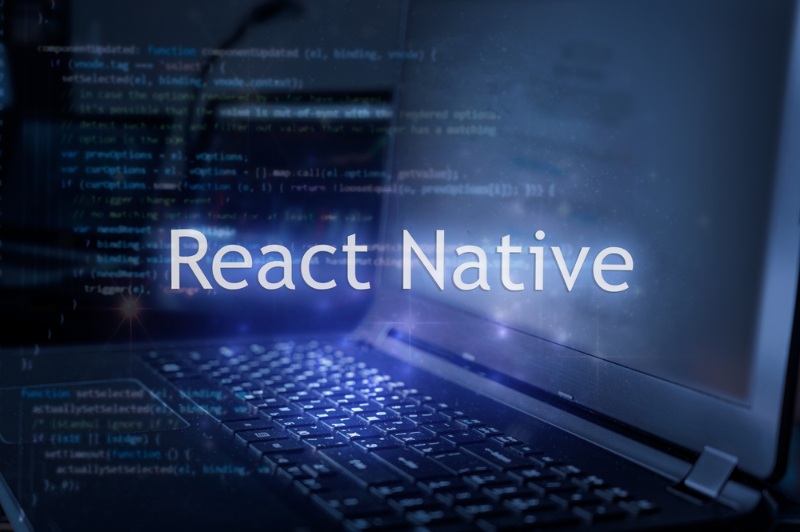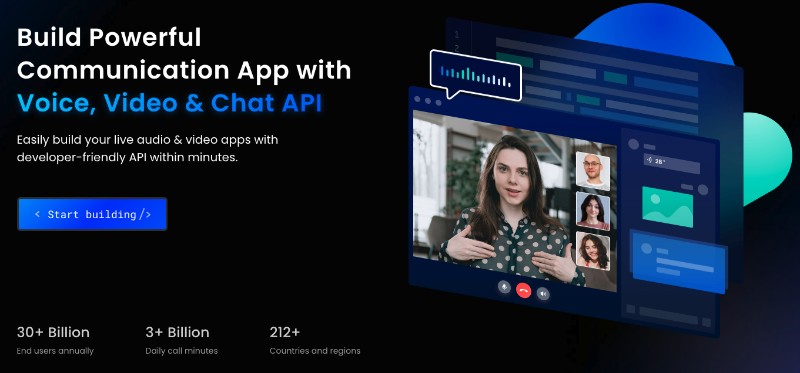React Native vs Swift is an important choice to make as a developer, but which one is the best choice for your app? This article will compare React Native vs Swift to help you decide which is better for your needs. We’ll take a look at the differences between the two frameworks, their performance, and the benefits and drawbacks of each. By the end of this article, you should understand which option is best for your app.
What’s React Native?
React Native is an open-source framework that allows developers to build native mobile applications using JavaScript and the popular React library. Facebook developed it. With React Native, you can build a single app that runs on Android and iOS platforms, saving you time and resources.
One of the main advantages of React Native is its ability to bridge the gap between web and mobile development. It allows developers to reuse their existing JavaScript skills and build mobile apps with the same performance, look, and feel as native apps. This means that users won’t know the difference between a React Native app and a native app built with Java or Swift.

React Native features
Here is a list of features for React Native:
- Cross-platform compatibility
- Code reuse
- Hot reloading
- Strong developer community
- Native performance
- Modular architecture
- Integration with third-party plugins
- Live updates without requiring app store submission
- Ability to use native code alongside React Native code
- Support for Redux and other state management libraries
Types of React Native Apps
With React Native, developers can build various types of apps. Some common types of React Native apps include:
- E-commerce apps: React Native is an excellent choice for building e-commerce apps because it allows developers to create smooth, fast, and visually appealing shopping experiences.
- Social media apps: React Native is well-suited for building social media apps because it can handle large amounts of data and provide a seamless user experience.
- On-demand apps: React Native is often used to build on-demand apps such as ride-sharing or food delivery apps. Its ability to handle real-time updates and large amounts of data makes it well-suited for these apps.
- Gaming apps: React Native can be used to build simple mobile games with smooth and responsive gameplay.
- Productivity apps: React Native is a good choice for building productivity apps because it allows developers to create fast, user-friendly apps that help users get things done.
What’s Swift?
Swift is a powerful and intuitive programming language developed by Apple for building applications for iOS, iPadOS, macOS, watchOS, and tvOS. It is easy to read and write and safer than Objective-C, its predecessor.
Performance is enhanced using the latest technologies to ensure your apps run smoothly and efficiently.
Overall, Swift is a powerful and intuitive programming language well-suited for building applications for Apple’s platforms. Its support for type inference and options and its focus on performance make it a popular choice among developers.
You may also like: Swift vs. Objective-C: iOS Programming Languages Comparison
Swift features
Swift comes with several features that make it an attractive choice for developers. Some of the key features of Swift include:
- Type inference: Swift’s support for type inference means that the compiler can automatically deduce the type of a value based on the initializer or the context in which it is used. This makes it easier to read and write code.
- Optional: Optional allows developers to handle the possibility of missing data, which helps to ensure that code is more robust and less prone to errors.
- Closures: Also known as blocks or lambdas, closures make writing concise and expressive code easier. Closures are self-contained blocks of code that can be passed around and used as needed, making writing asynchronous and event-driven code easier.
- Generics: Generics allow developers to write flexible and reusable code that can work with various types. This helps reduce the amount of code to write, making writing more flexible and maintainable code easier.
- Memory management: Swift uses automatic reference counting (ARC) to manage memory, so developers don’t have to worry about manually managing memory. This helps to reduce the risk of memory leaks and other issues that can cause apps to crash.
Types of Swift Apps
Swift is a powerful and intuitive programming language well-suited for building a wide range of different types of applications. Some common types of Swift apps include:
- iOS apps: Swift is the primary language for building iOS apps, and it is used by developers to create a wide range of different types of iOS apps, including games, productivity tools, and social media apps.
- macOS apps: Swift is also used to build macOS apps. It is well-suited for creating desktop applications utilizing the latest technologies and features on the Mac platform.
- watchOS apps: Swift is the primary language for building apps for the Apple Watch, and it is used to create a wide range of watchOS apps, including fitness and health tracking apps, productivity tools, and games.
- tvOS apps: Swift is also used to build apps for the Apple TV, and it is well-suited for creating applications that take advantage of the large screen and powerful hardware of the TV platform.
Why ZEGOCLOUD API for both React Native and Swift
When building real-time communication and live-streaming applications, developers have several options. One such option is the ZEGOCLOUD API, which supports React Native and Swift.

So, why would a developer choose the ZEGOCLOUD API for their project?
One reason is that it provides a comprehensive API for building real-time communication and live-streaming applications. These APIs are easy to use and allow developers to add features such as video and audio streaming, group video chat, and screen sharing to their apps.
But perhaps the most significant advantage of the ZEGOCLOUD API is that it supports React Native or Swift. This means that developers can choose the language that best fits their needs and skill set and build high-quality real-time communication and live streaming applications using the tools they are most comfortable with.
ZEGOCLOUD features
- Advanced video chat and audio processing algorithms for high-quality streaming
- Automatic transcoding to support a wide range of devices and network conditions
- Customizable layout and design options for the user interface
- Advanced analytics and reporting features for understanding user engagement
- In-app notifications and alerts for real-time updates and alerts
- Ability to customize and extend the functionality of the SDK using plugins and third-party integrations
- Robust security measures, including end-to-end encryption and authentication options for safeguarding user data
ZEGOCLOUD pricing
We offer flexible billing options. Generally, pricing starts at $0.99/1000 minutes. Get free 10,000 minutes, Sign up now!
Conclusion
React Native and Swift are both popular options for building mobile apps. React Native is a JavaScript-based framework that allows developers to build native mobile apps using a single codebase, making it a good choice for cross-platform apps. On the other hand, Swift is a programming language developed by Apple that is well-suited for building native iOS apps. In the end, the choice between React Native and Swift will depend on the specific needs and requirements of your project.
With ZEGOCLOUD API you can build real-time communication with either Swift or React Native with ease.
Read More:
Let’s Build APP Together
Start building with real-time video, voice & chat SDK for apps today!










